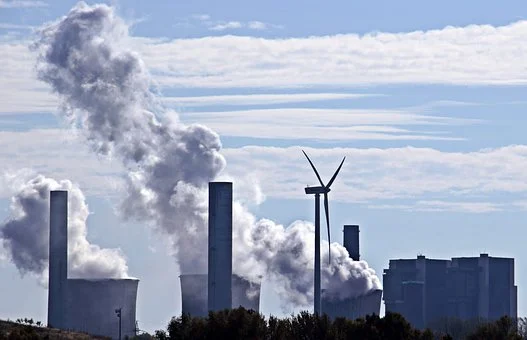Air pollution linked to trajectory of stroke

In today's time, our environment is dealing with numerous issues starting from pollution to deforestation. One of the major problems is air pollution.
Keywords: Air pollution, environment, stroke, cardiovascular diseases, nitrogen oxide, nitrogen dioxide, deforestation.
Air pollution is referred to as the emission of gases into the environment that is proven to be harmful. The causes of air pollution are:
- Burning of Fossil fuels
- Automobiles
- Agricultural activities
- Factories and Industries
- Mining activities
- Domestic sources
Effects of air pollution are:
- Diseases
- Global warming
- Acid rain
- Ozone layer depletion
Now a new study found a link between stroke and air pollution. The study involved 3,18,752 people with an average age of 56 years. These participants didn't have any history of stroke or heart disease at the start. They were followed for 12 years. The researchers considered their exposure to air pollution based on the region they lived. During this tenure, 5,967 people experienced a stroke. Of those, 2985 people developed cardiovascular diseases and 1,020 people died.

Individuals who had exposure to high levels of air pollution were more likely to experience stroke first, post-stroke cardiovascular disease, or death compared to those who had exposure to low-level air pollution. Researchers also evaluated other factors that could be involved in health problems such as smoking activities, etc.
The researchers also found that the pollutants such as nitrogen oxide and nitrogen dioxide were associated with an increased risk of stroke.
Study author Hualiang Lin, PhD, of Sun Yat-sen University School of Public Health in Guangzhou, China said, "We found that high levels of air pollution were associated with increased risks of transitions from being healthy to a first stroke, cardiovascular events after stroke and death, but with a stronger effect on the transition from being healthy to having a stroke".
"These results indicate that understanding and reducing the effects of air pollutants on different transition stages in stroke will be beneficial in managing people's health and preventing the occurrence and progression of stroke".
"More research is needed, but it's possible that decreasing exposure to heavy levels of air pollution could play a role in reducing the progression of stroke. People can reduce their exposure by staying indoors on heavy pollution days, reducing their outdoor exercise, wearing masks to filter out particulate matter and using air purifiers".
The researchers clarified that the study doesn't prove that the main cause of stroke is air pollution. It only gives us a link of association.
Ways that can be adopted to reduce air pollution:
- Make less use of vehicles.
- Make use of renewable energy.
- Dilute the air pollutants.
- Stop deforestation.
- Reducing the use of fire products

As responsible people, we must take all the measures to protect our environment from all these problems. Pollution is not only destroying our environment but it is also impacting the health of all living organisms. So, it is very necessary to take effective measures.
Story Source:
Materials provided by American Academy of Neurology. The original text of this story is licensed under a Creative Commons License. Note: Content may be edited for style and length.
Journal Reference:
- Zhizhong Zhang, Mengmeng Wang, Dipender Gill, Xinfeng Liu. Genetically Predicted Smoking and Alcohol Consumption and Functional Outcome After Ischemic Stroke. Neurology, 2022; 10.1212/WNL.0000000000201291 DOI: 10.1212/WNL.0000000000201291
0 Comments